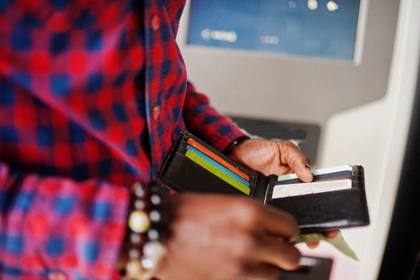How to get a credit card when self-employed
Some lenders might see your variable income as a greater risk. What if it drastically drops one month and you can’t stick to your repayment with them as a result? However, this stance will vary from lender-to-lender and card-to-card, and so with a bit of research, there’s no reason you can’t secure the credit you’re after.
Different credit cards fit different situations - employment status or otherwise, so if you are self-employed, here are the steps to take before applying for a credit card.
- do some thorough research - check out a few comparison sites and see which lenders offer credit cards for the self-employed - although this is by no means a guarantee you’ll be accepted, it’ll certainly increase your odds
- ensure your credit history’s in good shape - if you’ve got a track record of missing payments you’re essentially making lenders’ trepidation case for them, so spend time making up for any past mistakes. The better your credit history, the better your chances of being accepted
- use a soft search tool (like Ocean's QuickCheck) - this is a pre-check of your details that doesn’t impact your credit score but tells you if you’re pre-approved for the card you’re thinking about
Does a fluctuating income impact a credit card application?
Yes, it does. Rightly or wrongly, some credit card providers assume your fluctuating income means you’ll:
a) find sticking to your repayments and managing other financial commitments too confusing, and
b) struggle to meet repayments during lower income months.
All lenders want from applicants is assurance that they’ll recoup all their money with minimal fuss. Anything that goes against this can make them wary.
How to define my income when self-employed
This is when it can get tricky. If you’ve been self-employed for two or more years, a good rule of thumb is to take the average from your last two years’ worth of earnings. If your salary’s been consistent or increased this will fill lenders with a little more confidence.
To prove your income, you may be asked for a copy of your HMRC SA302 form, confirming your latest tax calculations.
If you’re still fairly new to the self-employed world though, you might not have a full year to go off yet. In this case, you’ll just have to make a realistic estimate of your annual income - but don’t go making outlandish predictions in a bid to make your application look better. If you’re caught out, this could constitute credit fraud.
I have bad credit and I’m self-employed
Being self-employed worries lenders. Having a bad credit history worries lenders. There’s no point in sugar-coating it, it’s not a good combination.
This duo still doesn’t mean you’ll necessarily hit the end of the road though, it just means your credit card options might be even slimmer and less attractive - e.g. with a higher interest rate attached to them, or with a lower credit limit.
If you’re not in a hurry to get your hands on a credit card and you check both the self-employed and bad credit boxes, it might be worth holding off, taking steps to improve your record, and then reapplying down the line when you’re more likely to be accepted.
And if waiting isn’t an option, just be extra cautious with your research and applications. Repeatedly being rejected for credit shows up on your credit history and damages it even further, so do everything in your power to only make applications you know you’ve got a good chance of being successful with.
How to build your credit score when self-employed
Building your credit score if you’re self-employed is no different to if you were in full-time employment. Sticking to these simple steps will help you make inroads:
- whether it’s your mobile phone bill or your mortgage, make sure you stick to any credit commitments on time and in full each month. This will prove to lenders you can be trusted with borrowing and repaying money
- if you’re not already, get yourself on the electoral roll by registering to vote. This will allow lenders to quickly and easily verify you are who you say you are
- sign up to the main credit reference agencies - Experian, Equifax and TransUnion - and check your credit report for any mistakes - i.e. a false missed payment. If you think there’s an error get it corrected by contacting the credit reference agency directly. You can also check your credit score for free (for life) with our member-only platform, CredAbility.
- it’s also a good idea to see if you’re still “financially linked” to someone you shouldn’t be – such as an ex-partner or a previous university flatmate. For more tips, check out our guide to improving your credit score and give yourself a better chance of getting accepted in the future.
- work on your credit utilisation ratio - this is how much credit you have available to you versus how much you’ve actually spent. While lenders don’t like to see you’ve maxed out all your credit, they also don’t like to see you haven’t touched any of it. Ideally, you should aim for a ratio of between 20%-30%.
- as we mentioned earlier, applying for too many credit products in a short space of time can harm your credit history further. They can make you look desperate to access cash and that’s not something lenders tend to look for. To improve your credit score, it’s best to try and limit your applications
Ocean Credit Card
See if it's a YES before you apply
- Up to £1,500 credit limit
- Checking won't affect your credit score
- Get a response in 60 seconds
39.9% APR
Representative (variable)
Intelligent Lending Ltd (credit broker). Capital One is the exclusive lender.

Disclaimer: We make every effort to ensure content is correct when published. Information on this website doesn't constitute financial advice, and we aren't responsible for the content of any external sites.






